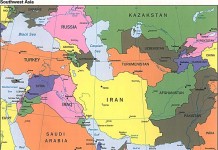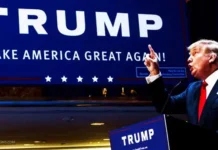
Context
The Shanghai Cooperation Organization (SCO) held its head of state summit in Dushanbe, Tajikistan on September 17. The conference took place in the backdrop of the collapse of Ashraf Ghani government in Afghanistan as Taliban took over. This was accompanied by the complete withdrawal of US and coalition troops – that has raised alarmed bells across the region and beyond.
The future of the US presence in the South and Central Asia, and increasingly Middle East region, have remained the focus of SCO. As early as June 2010, the then Russian President Dmitry Medvedev had commented that the future of Afghanistan was directly relational to security and stability in all SCO countries and most observer countries, and that the SCO must endeavor to increase cooperation and involvement in Afghanistan to try and ensure stability in a post-US scenario.
The withdrawal of US troops and NATO from Afghanistan represents a significant shift in the regional and global balance of power – and while Taliban are in the process of establishing their government – they have not formally been recognized by any other nation yet. This is reflective of the wait and see approach. As Taliban get established and their domestic and foreign policies become more apparent – that is likely when the recognition process and financial support starts.
As SCO matures, other questions regarding its vision and capabilities also come in to play. The Dushanbe Declaration stated, it aspires:
“a more representative, democratic, just and multi-polar world order based on universally recognized principles of international law, cultural and civilizational diversity, mutually beneficial and equal cooperation of states under the central coordinating role of the UN.”
While the US has insisted that it will continue ‘over the horizon’ operations in Afghanistan as needed – the withdrawal from Afghanistan represents an attempt towards obtaining strategic clarity – and re-prioritizing its national interests. While US has been striving to Pivot towards Asia for a while, other global distractions have come in the way, and continue to pull US towards the War and Terror related hot-spots.
As the War Against Extremism was being waged, American sway in the Islamic world has been considerably reduced, and other than the Gulf Arab nations, its ties with Turkey, Iran, and Pakistan remain tense. It is interesting to note that Pakistan and India are already full members of SCO. Interestingly, Iran attained full membership, while Saudi Arabia, Qatar, and Egypt also achieved the observer status during the SCO 20th anniversary convention.
Nonetheless, US and NATO withdrawal increases pressures on SCO, and the member states, to maintain stability in Afghanistan. If it not managed well, it could escalate the regional tussles.
NATO, QUAD, and AUKUS
While SCO contemplates with how it can safeguard its interest in other parts of the world where it carries significant stakes, like Afghanistan or the Pacific, a growing concern for the US is how much it can depend on NATO and other allies to counter threats emanating from global adversaries – such as China and Russia.
European nations have increasingly been seen dealing with both – building trade relations with China and Russia at the expense of US. Moreover, the European allies are increasingly acting as go-betweens – to mitigate ties with those nations with which US has less than amicable relations. For example:
- Under US pressure, UK banned Huawei from developing the 5G networks in 2020 due to security concerns, resulting in strong criticism from Chinese officials. Huawei had been operation in UK for at least 20 years and was an integral part of its 4G network.
- In 2015, France backed away from selling two high tech Mistral warships to Russia, a deal worth $1.6 billion, reportedly due to Russian annexation of Crimea in 2014. The deal was highly criticized by US since France is a NATO member and supplying of the ship would have augmented Russian military capabilities.
- Then there is the controversial Nord Stream 2 Gas Pipeline that goes from Russia to Germany. Merkel government averted sanctions and reached a deal with the Biden Administration in July. The agreement involved investing more than 200 million euros in energy security in Ukraine and sustainable energy across Europe. US-Germany ties were strained considerably when Trump administration decided to pull out 9,500 US troops based in Germany.
“Should Russia attempt to use energy as a weapon or commit further aggressive acts against Ukraine, Germany will take action at the national level and press for effective measures at the European level, including sanctions to limit Russian export capabilities to Europe in the energy sector,” a senior State Department official told a CNBC reporter in July.
- Other NATO member, Turkey, bought S-400 missile defense system from Russia in 2017. This resulted in Countering American Adversaries through Sanctions Act (CAASTA) kicking in, claiming the deal would threaten NATO alliance and F-35 fighter jets in Turkish fleet. Enacted in 2017, CAASTA urged American allies and partners to not engage in transactions with Russia, Iran, and North Korea or risk sanctions. This has also prevented Pakistan from moving forward with Iran-Pakistan Gas Pipeline Project.
- Another American ally, India, is also in the process of acquiring the S-400 air defense system at the cost of $5 billion. According to some reports, India will receive the system by the end of the year.
- In December 2019, US gave a waiver to India to jointly develop the Chabahar Port with Iran, which is seen as a counter to Pakistan’s Gwadar Port – being erected with Chinese investment. It can serve as an alternative supply route for Afghanistan and to help the country diversify its export opportunities. While the US strategic partnership with India has been evolving, it has remained reluctant in talking stronger role against China or getting engaged in the security realm in Afghanistan. Not only that, it is also ironically a full member of SCO. And thus, serious questions continue to be raised about the efficacy of QUAD alliance.
And this is where the trilateral alliance AUKUS, announced on September 15, comes into play. From the American perspective, one can observe what is the use of alliances or strategic partners that have significant divergent interests – as has been demonstrated from the behavior of European allies, that have to be cajoled to contribute more towards their defense spending – and cut down their dealings with adversarial powers. The quality of the alliance is more critical than the quantity of partners.
Managing the Rise of China
For US the question has remained how best to counter China which since its admission to the World Trade Organization in 2001, has gotten fully intertwined in global trade. The Trans-Pacific Partnership Agreement signed in February 2016, and dumped by Trump in 2017, represented the economic approach to deal with China. The recently formulated AUKUS pact between Australia, UK, and US is a security-oriented alliance.
The best approach would involve more economic dimension – according to Fareed Zakaria’s Washington Post column, titled: To contain China, joining the Pacific trade pact might be more effective than new submarines. But there is another dimension to this debate that was last heard prominently during the Obama administration – and has to do with coexistence. Speaking at the Asia Society Policy Institute (ASPI) event in July, the White House coordinator for Asia Pacific, Kurt Campbell, admitted that coexistence is still possible but expect a period of uncertainty and raised tensions.
Speaking at the inception ceremony of ASPI in 2014, Henry Kissinger had stated while the Russian aggressiveness in Europe is clearly worrisome, it’s China that has the size and the economic wherewithal to challenge US. Moreover, this challenge does not appear to be a military one but perhaps more of an economic one. However, ever since, Chinese military capabilities are increasing by leaps and bounds.
Speaking at the same ASPI event in 2014, then Chinese Ambassador to the US, Cia Tiankai, had insisted they are not against the US presence in the Pacific; after all they have been there for a while. Furthermore, US businesses have large presence within China as well. What they (Chinese) are worried about is the US intent when it is building alliances in the region and conducting military exercises. When asked about what Kissinger’s advice would be for the Chinese and the US in the present circumstances (2014). He stated that he would tell China to not let the military issues overhang in their ties, while he will tell US not to get involved in military provocations, exercises in the region, or develop bases.



